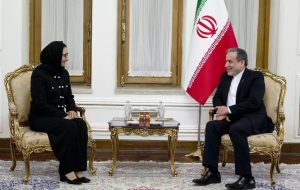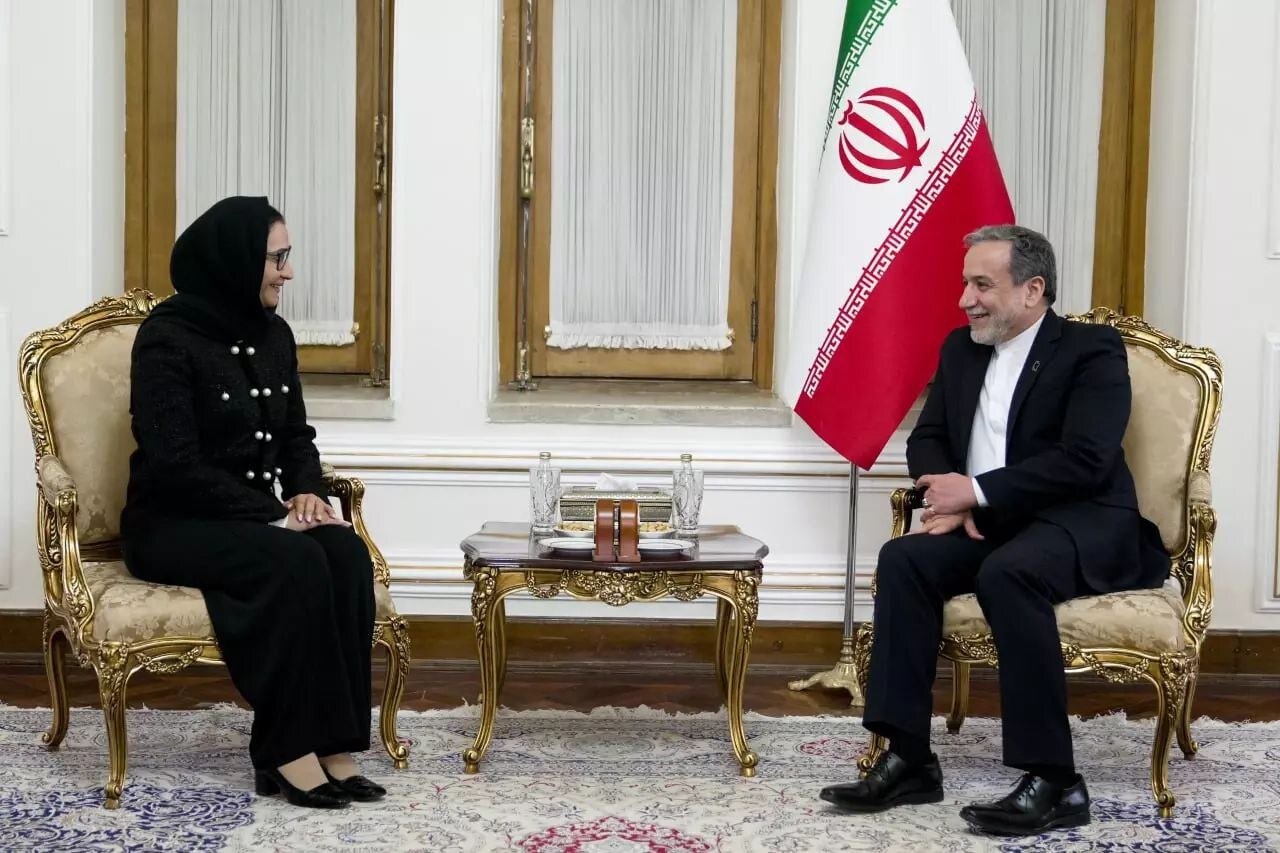WFP determined to support Iran in hosting refugees
TEHRAN –Maysaa Alghribawy, the new representative of the World Food Program (WFP) in Iran, has announced the organization’s commitment to supporting Iran as one the biggest refugee hosting countries. Highlighting the challenges faced by the WFP in the region, Alghribawy asked for enhancing cooperation and interactions with the country to advance the organization’s efforts and


TEHRAN –Maysaa Alghribawy, the new representative of the World Food Program (WFP) in Iran, has announced the organization’s commitment to supporting Iran as one the biggest refugee hosting countries.
Highlighting the challenges faced by the WFP in the region, Alghribawy asked for enhancing cooperation and interactions with the country to advance the organization’s efforts and responsibilities in Iran, as well as the region, foreign ministry website reported.
The official made the remarks on Sunday, January 12, in a meeting with Iranian Foreign Minister Abbas Araghchi, while presenting her credentials, and giving an account of this humanitarian organization’s programs and operations in food security.
Araghchi, for his part, underscored the significance of promoting collaborations saying that “addressing humanitarian crisis, including refugees and migrants’ crisis, in West Asia requires regional and international cooperation.”
Some 4,000 authorized Afghans enter Iran daily
In November 2024, the head of the National Organization for Migration, Nader Yar-Ahmadi said nearly 4,000 Afghans with valid passports enter the country every day.
Approximately, six million Afghans, including documented and undocumented ones, are residing in the country, ILNA quoted Yar-Ahmadi as saying.
Migration can be due to many factors such as regional crises including political, social, and even natural crises which provoke social changes.
Stating that foreign nationals entering any country need a deposit of at least 100,000 dollars for a one-year residence permit, the official said the country is looking for thorough documentation of individuals who have entered the country to organize them better.
Iran may rethink refugee policies
In October 2024, Yar-Ahmadi said, “In case the international community refrains from taking responsibility and fairly sharing the burden of hosting refugees, the Islamic Republic of Iran will probably revise its immigration policies.”
The official made the remarks in a meeting held on the sidelines of the annual session with Flippo Grandi, the UN High Commissioner for Refugees.
The 75th Annual Session of the Executive Committee of the United Nations High Commissioner for Refugees (ExCom) held from October 14 to 19 in Geneva, Switzerland.
Lauding the support and the efforts of the UNHCR in Iran, the Iranian official said the increase in foreign nationals’ population along with educational, economic, cultural-social, and health infrastructure pressure on one hand and the lack of consistency between the UNHCR budget and the needs and costs of refugees in the country on the other hand have caused numerous problems, IRNA quoted Yar-Ahmadi as saying.
The official emphasized less than one percent of the costs of refugees have been paid for; hosting more refugees is improbable, and they have to return to their home country.
“The priority of the country is to resettle vulnerable refugees in third countries, despite promises made in your last visit to Iran in the calendar year 1400 (2021 – 2022) to provide more vulnerable refugees with insurance, sadly, not only did the number of those covered not increase, but also decreased from 120,000 to 95,000 individuals.
It should be noted that political issues, including sanctions, must not affect humanitarian activities. Since humanitarian issues are apart from political issues, the Islamic Republic of Iran is ready to cooperate with financial supporters of refugees in the country, the official added.
Considering the challenges facing the education system due to the free education of Afghan nationals in the country, it is necessary for the UNHCR to cover the expenses related to their education, including building new schools, refurbishing and equipping schools, and paying teacher recruitment costs.
Some 25,000 classrooms are needed for the education of foreign students, but since 2021, only 21 schools have been built with the support of the UNHCR in the country which does not meet the needs.
MT/MG
